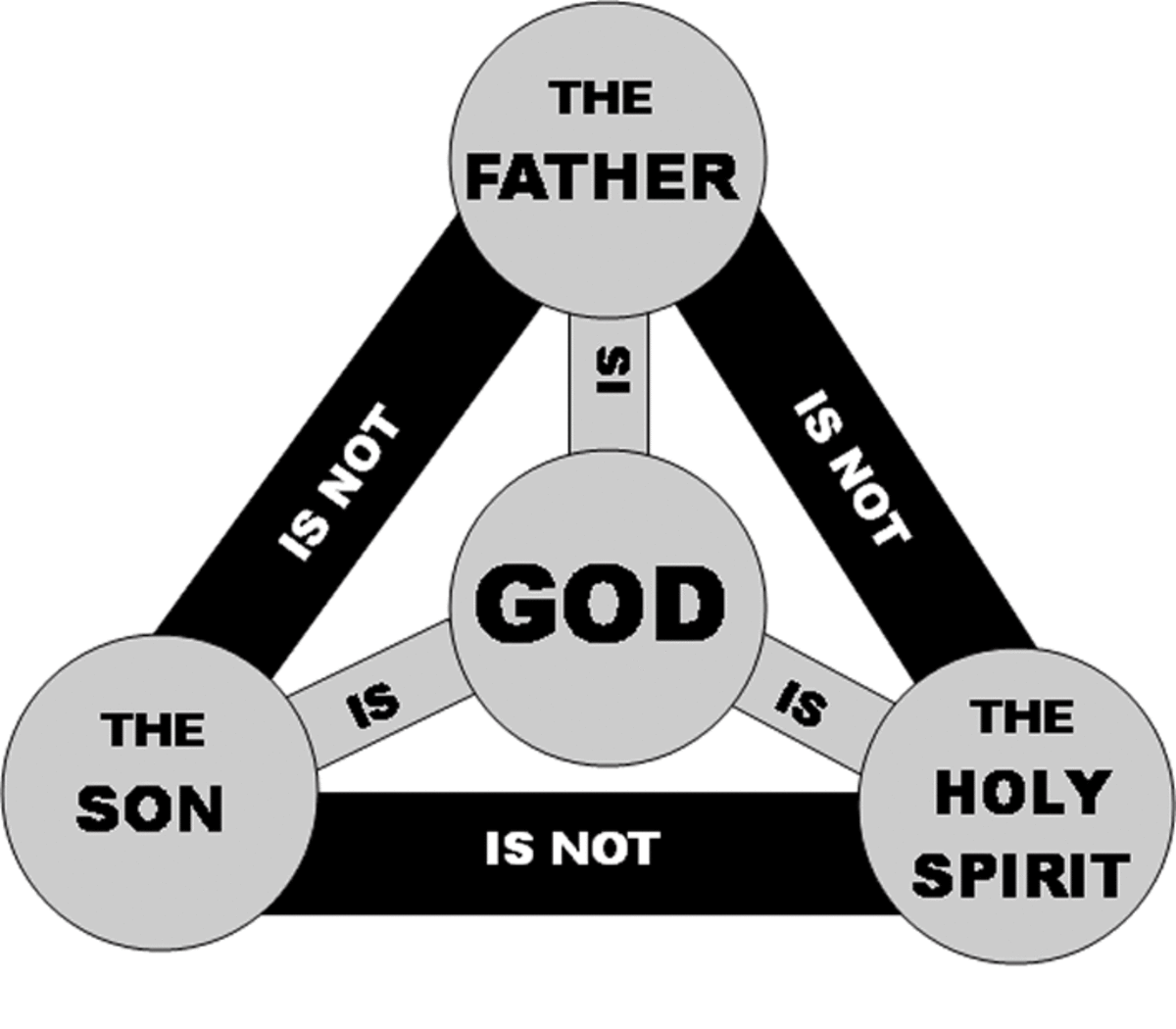Sentence Sermons (Christian Inspiration) #65 --- Giving (Giving Gifts)
Quotations on Giving (Giving Gifts)
The true Christian gift, hallowed by its association with the idea of the world’s Redeemer, represents the unselfish interest in the happiness of others.
There are three prime essentials in the giving of such a gift. In the first place, while it is intended to promote the happiness of the one who receives it, it should also minister to the happiness of the one who receives it. The gift should not impoverish or otherwise injure the giver. It should be such a gift as he or she can afford to give and such as will prove a benefit in the highest sense to the bestower.
In the next place, the gift should be appropriate, suited to the time, the place, the person and the condition; an example, in short, of the eternal fitness of things. Lastly and firstly all the time the gift should be given ungrudgingly, with a whole heart, with no thought of policy or of selfish calculation, but purely as an expression of friendship and love. The cost should cut no figure. Well and wisely has it been said: “The best Christmas gift is not the one which costs the most money, but the one which carries with it the most love.”
In this light, this triple light, let us survey the great gift of God, our Heavenly Father, when He “gave His Only Begotten Son, that whosoever should believe on him”–and belief presupposes obedience–“should not perish, but have everlasting life.” Depend upon it, that gift did not impoverish the giver. The well of divine love is always deepest when most is drawn. Rather, did the giving of the gift add to God’s honor and glory. The possession of all power in heaven and on earth came to the Savior Himself as the result of His crucifixion on Calvary.
Rest assured that the gift was given ungrudgingly and that it was an expression of the whole-souled love God feels for man. While there was full foreknowledge, no doubt, of the inevitable fruits of the sacrifice, there was no selfish, sordid calculation, but simply pity and compassion and a desire to benefit mankind.
—Orson F. Whitney, Salt Lake Herald, Salt Lake City, Utah, Dec. 26, 1906.
There is a vast difference between giving gifts and merely exchanging gifts. Most of our giving at Christmas involves the latter. We anticipate those persons who will give to us and how much they will spend–and we attempt to reciprocate in value if not in kind. Our giving is almost always limited to our social cliques–and more often than not we worry and fret over what to give those friends who "have everything" while they worry and fret over what to give to us.
What a predicament we find ourselves in if we receive an unexpected gift!
Occasionally the circle becomes so vicious that in desperation we cry out, "Let's just call it even this year."
Such giving is not giving--it is merely the exchanging of gifts and most of us would be better off if we simply "called it even" instead of swapping dollars.
How different it is to give! Giving implies no thought of receiving anything in return. Giving is a desire born of love. To love is to give. When we love a person, in us is born a desire not only to supply his needs but also to give release to our emotions. Good gifts speak the language of love. They express our inner feelings when words fail.
And both the giver and he who receives is blessed. A mother knows what it means to receive a crude, homemade bouquet, perhaps of wildflowers and weeds, from that small son or daughter. Or course the homely little bouquet may be of no material value and quite useless--but oh, how it is appreciated and valued! What words it speaks!
Such is real giving at Christmas.
And now a word to the one who is fortunate enough to receive a gift of love--don't nullify its meaning with a quick trip to the store to buy something with which to reciprocate. To do so is to refuse the friend's gift.
Sometimes we may be somewhat embarrassed when a person gives us something which we know he couldn't afford. The first impulse may be to refuse it or perhaps to spend an equal amount on him.
But don't do it! Don't deprive him of the joy of giving with any such affront to love or friendship.
Exchanging gifts is meaningless.
Gifts given through a sense of obligation likewise are as nothing. If we would enter into the true spirit of Christmas, we would give--not exchange--good gifts.
—H.M. Baggarly, Tulia Herald, Tulia, Texas, Dec. 18, 1958.
To exchange presents, accompanied by words of good will and good cheer on [Christmas Day] is a beautiful and highly commendable custom. The act of giving awakens in our souls feelings of unselfishness and the act of receiving develops our sense of real appreciation. By giving our souls are kindled by a spark of that divine flame that emanates from Him who was and is at once the light of the world and the giver of all good gifts. By receiving we are reminded of our interdependence, that no man lives unto himself alone, that each of us is indebted to God and many fellow beings for all that he has and is.
We have but few instances on record of Christ’s exchanging material gifts with His followers, disciples and apostles. ... Most of His gifts were of the Spirit. Wherever He went He bestowed spiritual blessings of both temporal and an eternal character, and in every particular and personal gift, such as giving health to the unsound, comfort to the downtrodden and distressed, and life to the dead, there was something of the Lord Himself that made the gift double precious. The recipient of the gift not only felt the desired surcease from his suffering but he was at the same time conscious of having been administered to by the Divine. Along with every gift of healing, Jesus gave faith, hope, sympathy, virtue. He always gave that which was of greatest worth to the individual. ... Jesus thought before He gave; He desired to satisfy the greater need–spiritual regeneration before physical recuperation; because He knew that the making of a life is infinitely more important than making life comfortable, as valuable as that might be. Christ gave service and in that service He withheld nothing. He kept nothing back. He gave His entire self. ...
It is pleasing in the sight of Christ to see His children show love and affection. The more kindness and love they show each other the better, the more pleased He is. But He desires something above the exchange of presents or the customary expressions of good will. Because of what He has given us individually and collectively, He expects us to give Him something in return–a spiritual gift, not for His sake but for our own sake. He expects us to do something more than merely appropriate to our use the blessings of His gospel of salvation. We are to give something that requires sacrifice.
The Christmas gift that Christ would appreciate most is complete acceptance of the everlasting covenant and the gospel of salvation. ... He desires a goodly number of active workers for His vineyard–men and women who are willing to forget their compensation in their eagerness and interest in the service they give. ... Are you willing to forget what you have done for the Lord and to remember what He has done for you; to think less of what you are going to receive and more of what you are going to give; to put your personal convenience and selfish interests into the background and your disinterested service to the Lord and humanity into the foreground; to ignore the allurements of sensuous pleasures in your endeavor to give your assistance in establishing the kingdom of heaven with its abiding pleasures of this spirit–are you willing to give yourself to the accomplishment of these purposes? Then you should at this Christmas time highly resolve to dedicate all your energies to the Lord. Tell Him that you will withhold nothing, that you will give your entire self as He gave Himself. ...
Are you conscious of the fact that you are your brother’s keeper, that you are in a degree responsible for the acts of others as well as your own? Are you not willing to see your home, your town, your community rid of pernicious evils? ... Give the Lord the gift of our service in this great work of human betterment. ... The Lord desires no Pharisaic attitude, no Puritanic countenance. He wants to see you happy; He is more pleased with a smiling repentant sinner who joyously does his best than a sober soul-soured saint be he ever so sincere. It does not mean that you shall not exchange material presents with your friends and loved ones. Such is consistent and pleasing in the sight of our Heavenly Father. On the other hand, it does mean that Christlike giving is of greater worth than Christmas giving; it means that the gift of intelligent service in a righteous cause is of greater worth than silver or gold or precious stones; it means that no gift is so gracious as the gift of yourself to the cause of Christ.
—Lofter Bjarnason, The Journal, Logan, Utah, Dec. 24, 1919.
If Christian giving is a grace that God bestows upon His people, then this grace like any other must be sought by consecration and prayer. This consecration takes in the whole man and all that he has. This was the test that Jesus Christ put to the rich young man, and the love of wealth was the one idol of his heart that he would not give up. ... Entire love of Christ was the one thing that he lacked. Such love for money, said an inspired Apostle, is the "root of all evil." ...
This grace must be sought by prayer, whenever a Christian man or woman gets a clear apprehension of duty and betake themselves to prayer, seeking for divine guidance, they will soon feel the impulses of divine love, swelling up in their hearts, and the grace of giving for the blessed Redeemer's cause will flow into their souls. Whenever Christian giving flows from the grace of God in the heart, it will be cheerful, large and free. When this grace takes possession of the heart, liberality flows freely like water from the pure fountain.
—J.S. Edmonds, The Baptist Chronicle, Alexandria, La., April 19, 1900.
The best gift is one's own self sanctified for the sakes of others.
—Howland Hanson, The Register and Leader, Des Moines, Iowa, Dec. 20, 1909.
It is not every Christian who has great gifts, but let it be remembered that our lives are measured, not so much by our gifts, as by our graces.
—J.B. Cranfill, Baptist Standard, Waco, Texas, May 30, 1895.
Giving to the cause of Christ is more a matter of inclination than ability. Everyone is able to give if his heart is full of the spirit of giving.
—J.B. Cranfill, Baptist Standard, Waco, Texas, April 29, 1897.
Christian giving has two sides, its Godward side and its manward side. On its Godward side it is the response of love to all that the soul has received. It is the mark of a soul's unity with God, for as we give we make the law of God's graciousness the rule of our own lives. On its manward side giving has this similar foundation in love, and love expresses in fellowship.
—William E. Gilroy, Alexandria Daily Town Talk, Alexandria, La., Oct. 20, 1928.
Giving is turning over to another the thing given, without retaining a conditional title. It is an act of wholly relinquishing all claims to that which is given, and vesting ownership wholly to another. Giving is a voluntary act upon the part of the giver. It cannot result from coercion nor grow out of obligation to the one who receives the gift. If we part with anything we have involuntarily or from coercion, then we are robbed, and if from obligation, we only pay a debt. Giving has its origin within the donor, and the gift is an expression of an inward condition.
—B.J.W. Graham, Christian Index, Atlanta, Ga., Sept. 16, 1915.
God's nature is to give. Those who are like God must give. God cannot use or honor a stingy tightwad. God will not hear a miser. ... Prayers without gifts are meaningless to God. The prayer without the gift is like a life without the heart.... The greatest thing in the world is love, but a love which does not give and serve is dead. The man who ties in with God will have the wealth and character of God poured into his life.
—Joseph L. Gross, Houston Post-Dispatch, Houston, Texas, March 1, 1925.
The quality of our gifts is always determined by the quality of our love. If we love little, we give little. If we love much, we give much. God is love and He has organized the universe to that end. It is only through love that is born of God that good will can be established among the nations of the world. Only through hearts that have been redeemed by the Savior of men can human relationships be lifted to a level of brotherhood and peace. All things work together for good to those who love.
—Herschel H. Hobbs, The Beam, Fort Worth, Texas, December 1966.
Love, gratitude, kindness, sympathy–these are gifts that do not tear or tarnish; and if we do not give them with the gifts we wrap in tinsel, we are not really giving.
—Wesley S. Izzard, Amarillo Daily News, Amarillo, Texas, Dec. 25, 1952.
We are, perhaps, too preoccupied with material giving. As a nation, we try to cure the world’s ills by giving dollars. How much better it would be if we would give to the world, instead, moral leadership, love, patience, sympathy. To our friends and family we might well give a little more time, a little more love. These are the things they really want.
—Wesley S. Izzard, Amarillo Daily News, Amarillo, Texas, Dec. 25, 1952.
Giving is one of the fine arts of life. In a gift there is an inevitable revelation of the personality of the giver. By his very gift he may express his sense of values. He may manifest his taste, indicating what he thinks is beautiful, or true, or good. In a gift there is also the opportunity to reveal one's opinion of the person to whom the gift is given. It may, in subtle delicacy, say that which is beautiful, or true, or good, is appropriately bestowed.
A gift may also be an expression of relationship. How wonderfully it can carry a message of gratitude, or admiration, or love! So often it is a memento of some mutual experience, recalling in vivid suggestion days, or seasons spent together. Some gifts are symbols of common loyalties, and speak of ideals which claim the obedience of the heart. ...
From this viewpoint, a gift is a signal of the soul, a gesture of the spirit. It is a self-impartation, one to another, and its value is determined by the worth of the feeling which it carries with it. Thus, the charm of a gift is to be found in its thoughtfulness. The gift itself, from its very appropriateness, ought to be saying, "I am thinking of you--of your tastes, of your need, of your individuality." ...
I have called giving an art because it has all the fineness of feeling, the sensitive imagination and the careful preparation which must be present in any real art. It has, too, that other requisite, without which any work must become dead and meaningless, the ability to translate one's self into his art. Here, too, will be found the art of happiness--the art of giving happiness--and thus, as is always true, the art of being happy.
—M. Ashby Jones, The Atlanta Constitution, Atlanta, Ga., Dec. 19, 1926.
Giving enriches the giver, and the way to enrich a soul is to give of that soul’s bounty. Hospitality not only profits the recipient but the benefactor as well. Doing good to humanity results in the greatest amount of pleasure for anyone, and the great satisfaction that comes from living the religion of Jesus Christ is due to the fact that in such a life one does the most good to others.
—Richard R. Lyman, Deseret Evening News, Salt Lake City, Utah, Aug. 24, 1914.
The spirit of Christmas is gratefulness for what we receive and giving with love of Christ to those in need.
—Marion G. Romney, Ogden Standard-Examiner, Ogden, Utah, Dec. 17, 1945.
Christian giving must be prompted by something higher than material need. The world is under obligation to give wherever there is need. The Christian is under a higher obligation than mere need. The motive stimulating all Christian service should be love. What God wants is not financial help from His children, but gifts of love which will express appreciation of His gifts to them. The liberal givers are those who recognize this privilege. A gift of love and gratitude has a threefold blessing. First, it pleases God; second, it blesses the giver; and third, it satisfies the recipient.
—H.J. Roper, Dallas Morning News, Dallas, Texas, Nov. 28, 1927.
The gift of Christmas becomes ours when we make it the beginning of the Christ-life in us. If we consider Christmas the end of another annual pilgrimage, we’re traveling in the wrong direction. We will have actually refused the gift by refusing to give.
—Richard W. Rowland, Salt Lake Tribune, Salt Lake City, Utah, Dec. 20, 1952.
Our gifts should be expressive of our better, aye, of our best selves. As it is often easier to “say our prayers” than to really pray, so it is with the formal making of presents as contrasted with the gifts in which our soul goes out to the recipient.
—James E. Talmage, Millennial Star, Liverpool, England, Dec. 18, 1924.
To begrudge a gift is to rob it of half its value--that half which comes to the giver. To be able to give cheerfully is to double the value of the gift. It helps the recipient or his cause, and it ties the giver into the work in a way no other thing can do. Besides, while we are not told that God hates a grudgeful giver, yet we know that God does not a cheerful giver. Giving that is forced cannot result in the spiritual growth of the giver. Where the heart goes with the gift, his own soul expands and his character is mellowed and ripened more and more into the image of God.
—C.B. Tigner, Christian Standard, Cincinnati, Ohio, Feb. 15, 1941.
God loves a cheerful giver. Not when gifts are squeezed out by pressure of necessity, but when they flow from us like the brook from a full spring. God measures our giving by our purpose. Did you give because it was a privilege to bestow and that you might grow more unselfish and live for others? Then in God's scales your gift weighs according to our motive. The richest souls are those who are willing to be poor that they may make others rich.
Why does God call on us to give? He does not need our gifts. Our giving makes Him no richer and His giving makes Him no poorer. It must be somehow for our own sakes He would have us give. We need it. The root of all sin is selfishness. To give is really to get. It is the opposite of selfishness. The selfish heart is a desert in which nothing that is good can live, in which nothing that is beautiful can grow. There is no likeness between selfishness and anything that comes from the hand of God. God's sun shines for all, birds sing for all, flowers bloom for all. Nature furnishes an endless surprises to him who tries to read her pages. The hearts of men are crowded so full of the things of this world that Jesus Christ can find no resting place for them.
There is no economy in selfishness. The richest lives are those that have been most lavish in blessings to others. How much better so to live that someone will sorrowfully miss us when we are gone. What monument like the brave, unselfish deeds of kindness for others with the Master's approval stamped upon them? "Having done them for the least of these my brethren, ye have done them unto me."
—George Edward Walk, Dallas Morning News, Dallas, Texas, Jan. 23, 1905.
The disposition to give is one of the greatest assets to a man he can have. That is, of course, the disposition to give freely and ungrudgingly. ... The privilege of giving is the greatest gift that God has bestowed upon man. We think we are safe in saying that through it is the true road to salvation. ... Salvation to us means a long, drawn-out process, the climax of which man may attain to gradually. When he has acquired strength enough with the aid of the Almighty to put all sinful desire under his feet, and knowledge and power enough to master the elements and perform Godlike works, then an individual may be accounted saved. In other words, no one can realize complete salvation here on earth. However, one may go a very long way toward it. ...
Salvation is the produce of spiritual growth. And what is spiritual growth? Acquiring moral, intellectual (and indirectly physical) power, by rising step by step in ability to do and to overcome. ... Spirit-exercise is found only in giving. That is evident enough when we run our eyes over the past, and note the men who have given the most to the world have become the greatest men. That is to say, have gone furtherest along the way of their soul-salvation. It does not mean, however, that they have bestowed it in dimes and dollars, but chiefly in good service to their fellows. ... Faithful, untiring, devoted service marked their whole public careers. Show us any man or woman that has been assigned a place in the category of the noble and great ones, and we will show you where such nobility and greatness (progress toward salvation) was achieved through what that man or woman contributed to the world. ...
Jesus of Nazareth sacrifice His feelings, laid down His life in the altar of gifts, in order to give us the greatest gifts of all, redemption from the grave and a plan of salvation by obedience to which we may climb to the greatest heights of exaltation attainable. Freely He bequeathed this splendid legacy to the world for the world’s good. It was the grandest gift that single being ever bestowed upon mankind, and the Donor was the only One who, after the service was given, could say, “Now am I, the Son of Man gloried.”
He attained to His might, glory and exaltation by giving, that great spirit-exercise. ... That is how every one of us will have to win ours–if we ever have any–with the gracious help of a loving Lord. ... Take all of the Master’s commands and weigh them one by one; do they not all indicate that you are to give something? “Love one another,” said He. ... Again, “Love the Lord your God.” If we love any being, do we not bestow our hearts on the object of our devotion?–and incidentally, a portion or all of our goods? ...
All of us can give something. We must give something or our souls will be dwarfed and our spiritual natures languish and die; we will never see salvation. That is why “God loves a cheerful giver,” because He delights to see His children grow and expand in strength and power to rise to celestial heights in His experience. Needless to say that we must give freely, not grudgingly, or its good effect on the giver is lost.
—B.F. Cummings, Liahona The Elders Journal, Independence, Mo., Oct. 17, 1908.
Every sphere of life is a sanctuary for serving God and every life can be a divine ministry. ... It is the glory of our God that He excels in gentleness as well as greatness. ... Let us resolve that our first gift shall be a loving remembrance for all His mercies. No gift to Christ or to humanity that doesn’t take part of our life with it in expenditure of physical and heart power is a cold, unsatisfactory way of giving. ... The Christ gave Himself. Your gifts to Him must include your own self if it be of truest worth. His work needs you, your thought, toil and love as well as your gifts.
—John Edward Carver, Ogden Morning Examiner, Ogden, Utah, Dec. 25, 1911.
Heavenly treasures are only saved for ourselves as we share them.
—Henry F. Cope, Chicago Tribune, Chicago, Ill., Feb. 2, 1908.
There can be gifts without love, but no love without gifts.
—Arthur A. Everts, Dallas Morning News, Dallas, Texas, Jan. 14, 1951.







